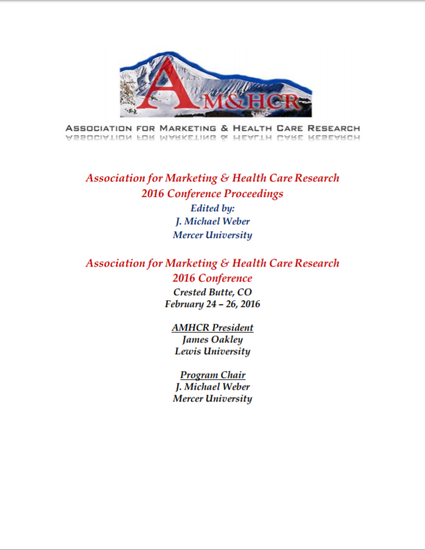
Contribution to Book
Political Representation and Human Health
Association for Marketing & Health Care Research 2016 Conference Proceedings
(2016)
Abstract
Countries display tremendous variation in human health outcomes such as infant and child mortality. What accounts for this global variation? This paper argues that the extent of political representation can explain existing disparities between countries where a more representative system enhances human health for two reasons. First, a higher degree of representation connotes the prevalence of a more inclusive political system as it enables multiple swaths of society to convey their needs and preferences to the decision-makers. Thus, a more representative society ensures that interests of multiple groups within society are incorporated in the policy-making process and policies formulated in such a society are better able to encompass the interests of the masses. A less representative system, on the other hand, is not as inclusive in nature and may only represent the interests of select groups within society. Second, a more representative system also signals the presence of a more competitive system, which provides incentives for all representatives to perform better to remain in office. Lower levels of representation may lead to a less competitive system, where incumbents do not have strong challengers to replace them from office, resulting in poor performance of political representatives. The theory is tested on a global sample of countries from 1960 to 2013. The findings confirm the beneficial effects of a more representative society.
Disciplines
Publication Date
2016
Editor
J. Michael Weber
Publisher Statement
Forthcoming
Citation Information
Nisha Bellinger. "Political Representation and Human Health" Association for Marketing & Health Care Research 2016 Conference Proceedings (2016) Available at: http://works.bepress.com/nisha-bellinger/6/
